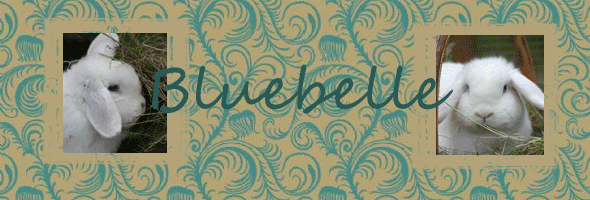From Bridge Veterinary Group
Winter rabbit advice
HOUSING
Check the inside of your hutch for water stains on the roof or sides. You can buy roof sealant from DIY stores to patch any leaks you find, the sides of hutches also need to be water proofed, this will stop the damp entering the hutch and also protect the wood from rotting. If you are treating the inside of the hutch it needs to be with a stain or varnish that is safe for pets.
Hutches should be raised up off the floor to prevent the base becoming damp. A brick at each corner will do if it doesn't have legs.
Covering the whole hutch with old blanket/carpet and a tarpaulin will help keep the heat in and the weather out. During the day leave the front open to ventilate and at night cover the majority of the hutch leaving a smaller area to ventilate.
Rabbits need a warm, snug bed area. This should be the equivalent of a box with an entrance hole. Often hutches have a bed area divided from the main hutch. If a sleeping section isn't available or its very large provide a smaller box as well, a smaller area will warm up around your bunny and keep them snug. This is only for sleeping you rabbit will still need plenty of space for exercise.
Provide extra bedding, and a thicker layer of the litter you usually use for the floor. Newspaper can be used to line the floors/walls underneath the bedding.
Entrances should face south, away from the wind. If it’s not possible to turn it around put something just in front to block direct wind and rain. Make any repairs to your rabbit’s home and make sure its water tight.
If possible moving the hutch into a shed or garage will help keep it warm. Do not put it in a garage that you also use for your car as the fumes pose a health hazard.
FEEDING
Outdoor rabbits will need more food during the winter months; they use more energy heating themselves so need to take in more energy through their food.
Water bottles/bowls will freeze and need checking regularly. Even if the main bottle is unfrozen it’s important to check the spout as this can freeze solid and block. Insulating the bottle can help, wrapping it up with an old towel and plastic or using insulators designed for wine bottles can help
It’s helpful to have spare bottles to use whilst ice defrosts, and also because plastic becomes brittle in the cold and is more likely to crack or shatter.
GENERAL CARE
Rabbits moult out their summer coats and get new thick winter ones, they will need brushing to prevent mats especially underneath if they are out in the wet.
Rabbits don't hibernate, if your rabbit becomes limp or sleepy its ill not hibernating for the winter, take it to the vet.
Rabbits will need cleaning just as regularly in the winter as summer, so wrap up warm and give the hutch regular cleaning. Bedding and litter thrown out into runs by 'decorating' rabbits will quickly become damp as will outside litter trays, and may need cleaning more frequently than usual. Outdoor litter trays need drainage holes to prevent them becoming pools of water and covered litter trays are a good idea.
Your bunny will also need company; many rabbits are neglected over the winter when the weather isn't nice for sitting outside playing with them. If your play times are usually outside consider moving them inside, rabbits can learn to be house trained.
It is ok to bring your rabbit inside for play times during winter, or let it out for play times if he/she is usually an inside bunny. However remember an inside rabbit won't have developed the same thick winter coat of an outside bunny so keep playtimes to the warmest parts of the day. If your outdoor bunny spends lengthy amounts of time inside they may start loosing their winter coat in response to the warm temperature.
Keep a look out for winter respiratory problems; symptoms include discharge from the nose, which might appear as 'dirt' around the nose and on the front paws due to washing, discharge from the eyes and nosy breathing.
IF YOU ARE EVER CONCERNED ABOUT THE HEALTH OF YOUR PET SEEK ADVICE FROM A VET.
Can I just make it clear that I don't agree with the advice of moving indoor rabbits outside and outside rabbits inside. This isn't healthy for bunnies, and is the equivalent of you going outside without a coat on or sitting inside with a fur coat on. The movement can bring on the moult of winter coat, in outdoor bunnies, and can bring on respiratory infections to those indoor bunnies put outside. I have brought this up for them and awaiting a reply
